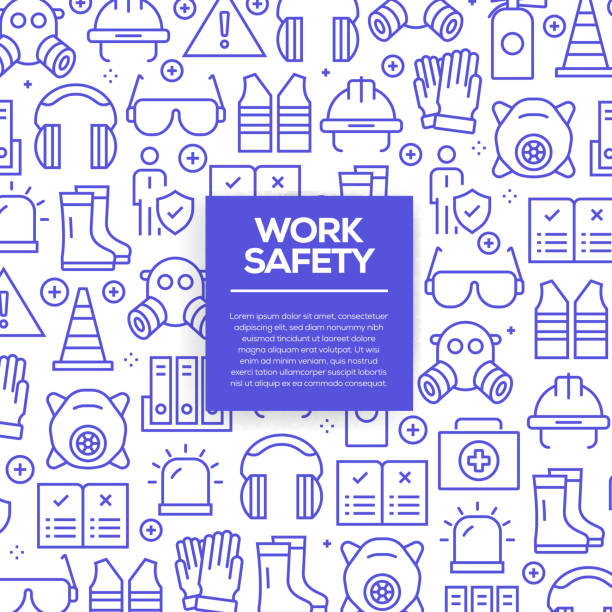
Employee says he was difficulity reading social cues
A NSW police officer dismissed for sexual harassment has attempted to defend his behaviour by claiming that he is “socially awkward”. The police officer took his unfair dismissal case to the NSW Industrial Relations Commission, arguing that he had difficulty reading social cues and was just trying to be “friendly.”
The police officer had previously made sexual comments to a female colleague. He had been warned that another instance of sexual harassment would end in his dismissal. But despite that, he still managed to do it again.
This unfair dismissal case highlights an important lesson for employees. That comments one person may deem acceptable may not be for another person. And that when you make comments in the workplace that have a sexual connotation, you can open yourself up to a fair and reasonable dismissal. Let’s take a look at the events of this unfair dismissal case – Mounce-Stephens v Commissioner of Police [2022].
What constitutes sexual harassment in the workplace?
Sexual harassment in the workplace is behaviour that is of an unwelcome and sexual nature. It is a form of workplace discrimination that can include physical touching, sexually suggestive remarks, offensive jokes, exposure to sexually explicit content and unwanted advances. The determining factors for identifying sexual harassment are whether the conduct is unwelcome. Whether it has a sexual context and would cause offense, humiliation or intimidation to a reasonable person.
In Australia, sexual harassment is prohibited under federal and state laws. Employers are legally bound to ensure sexual harassment does not take place in the workplace. They must implement proactive measures to prevent and address such incidents in the workplace.

Police officer with history of sexual comments is dismissed
Phillip Mounce-Stephens had been employed by the NSW Police Force since 1998. And over the next few decades, he received multiple awards and commendations for his outstanding police work. He eventually made the rank of Sergeant at Orange Police Station in country NSW. However, Mr Mounce-Stephens also had a checkered disciplinary record, which included an instance of sexual harassment.
In March of 2017, he was served a warning and placed on a conduct management plan for failing to properly supervise a prisoner in custody. Mr Mounce-Stephens had also made an unauthorised 106-kilometre trip in an unmarked police vehicle to deliver his house keys to his girlfriend. Then in June of 2018, he was demoted to Senior Constable after receiving a sexual harassment allegation. It was alleged that Mr Mounce-Stephens told a junior female officer who was about to convey a doctor to the country town of Cowra:
“…well if he’s not a gynaecologist he’ll be a gynaecologist by the time he gets to Cowra with you.”
Senior Constable Mounce-Stephens
Mr Mounce-Stephens admitted to making the statement. He was warned that any such similar behaviour in the future could lead to his dismissal.
“I should trip you over onto this mattress:” Constable sexually harasses colleague yet again
Despite the warning, just a little over a year later Mr Mounce-Stephens would embroil himself in another sexual harassment incident that would lead to his dismissal. On 17 August 2019, he made several comments to a junior female colleague that she considered to be of an unwelcome and sexual nature.
It was alleged that Mr Mounce-Stephens had repeatedly asked her to “go out with him” and for her permission to text her outside of work. It was also alleged that later that day, he made an inappropriate comment to the same colleague while handling a mattress at the police station. Mr Mounce-Stephens allegedly said “I should trip you over onto this mattress.”

“Socially awkward:” Police employee details mitigating social and medical issues
When confronted about the comments, Mr Mounce-Stephens denied that there was any sexual intent in them. He also denied making the comment concerning the mattress. A workplace investigation was conducted to corroborate the allegations.
In his response to the investigation report, Mr Mounce-Stephens, hoping to avoid a dismissal, provided a written statement in which he outlined several “mitigating factors” for his behaviour. This included that:
- He is “socially awkward” and has “always struggled to make and keep friends.”
- While he “does not have a formal diagnosis of ASD (Autism Spectrum Disorder), Mr Mounce-Stephens believed that he is “different.” He said that he sometimes “misreads visual and verbal communication cues.”
- He “rarely attends work social gatherings as I feel out of place.”
- He was “somewhat of a loner,” and as such, “can sometimes be overzealous when someone extends to me, what I interpret to be friendship.”
- There is “strong evidence” to suggest that he has “undiagnosed ASD.” Mr Mounce-Stephens stated that this “may go some way to explaining my differences in communication styles.”
Mr Mounce-Stephens also offered an apology to the female colleague in his response.

“Lack the integrity to be an officer:” Police employee is dismissed for sexual harassment
Despite the long list of mitigating reasons to explain his behaviour, the NSW Police Force dismissed Mr Mounce-Stephens. In his dismissal letter, NSW Police Force stated that his “repeated unwanted requests to go out on dates” with the female colleague met the definition of sexual harassment. Namely, that it was “unwelcome conduct of a sexual nature in circumstances where a reasonable person would have anticipated [the colleague] would be offended, humiliated, or intimidated.”
NSW Police Force also rejected Mr Mounce-Stephens’ argument that his behaviour was caused by undiagnosed Autism Spectrum Disorder. And it said that his apology to the female colleague was “disingenuous” and that he had “failed to show any genuine remorse over your conduct.”
No mercy was spared for Mr Mounce-Stephens’ other mitigating factors, either. NSW Police Force told him that it “considered your submissions regarding your financial position and your difficult personal life.” However, these concerns were overridden by the NSW Police Force’s duty “to provide a workplace free from sexual harassment.”
“Put simply, your actions demonstrate that you lack the necessary integrity to be an officer in the NSW Police Force and I cannot be satisfied that you would not engage in similar conduct in the future,”
Letter stated

“Inappropriate jokes:” Testimony paints worrying picture of police officer
In his unfair dismissal claim, Mr Mounce-Stephens argued that he was unfairly dismissed as he did not sexually harass his colleague. He provided the NSW Industrial Relations Commission with testimony from a psychiatrist. Following his dismissal, Mr Mounce-Stephens had received a diagnosis of “mild Autism Spectrum Disorder.” The psychiatrist stated that due to his condition, Mr Mounce-Stephens “has difficulty in his reading of subtle social cues.”
To aid their case, NSW Police Force provided witness statements to the NSW Industrial Relations Commission, corroborating the sexual harassment allegations. Not only from the victim of his sexual harassment, but also from other colleagues. A Senior Constable at Orange Police Station said that Mr Mounce-Stephens would frequently make “inappropriate jokes and comments.” And that these made “other members of staff, particularly female members feel uncomfortable.”
The Senior Constable testified that Mr Mounce-Stephens would often say things to colleagues that would cause “an awkward silence or people would say things like ‘you can’t say that.”

NSW Industrial Relations Commission rules on the unfair dismissal case
The NSW Industrial Relations Commission did not look favourably upon the arguments of Mr Mounce-Stephens. It accepted the witness testimony of the victim of his comments, as well as that of other colleagues, which corroborated that Mr Mounce-Stephens had made comments of a sexual nature to the victim.
It was accepted that he had violated the NSW Police Force’s Respectful Workplace Behaviours Guidelines. These state that “requests for sex or repeated unwanted requests to go out on dates” amounts to sexual harassment. It was also accepted that Mr Mounce-Stephens had indeed made the comments about the mattress to the victim.
The NSW Industrial Relations Commission noted that Mr Mounce-Stephens had made sexual comments “despite being warned and given extra training and mentoring.” And as for his psychiatrist’s diagnosis of mild Autism Spectrum Disorder, it was said that this “falls short of establishing that [his] condition caused him to sexually harass [his colleague] after he had previously been demoted and warned.” The NSW Industrial Relations Commission therefore found that NSW Police force had a valid reason to dismiss Mr Mounce-Stephens. His unfair dismissal claim was therefore rejected.

Workplace sexual harassment – the lesson for employees
The critical lesson of this unfair dismissal case is that even if someone feels their comments were made in jest, they may be considered as sexual harassment by someone else. It is important to remember that sexual harassment is unwelcome behaviour of a sexual nature that could cause offense, humiliation or intimidation to a reasonable person.
Therefore, what one person might think is acceptable may not be so to many others. Even if an employee makes a joke, if it meets the definition of sexual harassment, they can not use the excuse that it was simply a joke.
When jokes lead to a fair dismissal for sexual harassment
Another recent unfair dismissal case where an employee made sexual comments under the guise of humour is Warren Power v Lyndons Pty Ltd T/A Lyndons [2023]. In this case, the Applicant Warren Power had made several sexual comments to a colleague. These including: “I will f*ck you up the arse,” “suck my d*ck” and “come on then, get under the table, suck me off.”
The colleague told the Fair Work Commission that Mr Power “regularly said inappropriate things to him under the guise of humour.” However, these comments were found to be disrespectful and unacceptable, creating an unsafe work environment for others. Mr Power was subsequently dismissed for serious misconduct, involving bullying and sexually harassing.

Fair Work Commission rejects unfair dismissal claim
At his unfair dismissal hearing, Mr Power denied making the sexually-explicit comments. He also claimed that swearing was common in the workplace, and therefore if he had made the comments, his dismissal was a disproportionate response. However, the Fair Work Commission accepted that Mr Power had indeed made the comments. This was after multiple witnesses provided evidence confirming as much. It was also accepted that Mr Power made these types of comments regularly, coupled with aggressive behaviour.
The Fair Work Commission was also satisfied that the comments met the definition of sexual harassment under the Fair Work Act 2009.
“Whilst swearing in the workplace may or may not be commonplace, the words used by [Mr Power] went far beyond simply swearing in the workplace,”
The Fair Work Commission stated
The Fair Work Commission therefore ruled that Mr Power’s dismissal had not been harsh, unjust or unreasonable.

Have you faced unfair dismissal, harassment or discrimination at work?
We are leading advocates for justice, fairness and safer workplaces across Australia. If you have experienced an unfair dismissal, workplace harassment or discrimination, our expert team of passionate workplace specialists is here to fight for your rights.
As dedicated advocates of workplace justice, we have successfully handled over 16,000 employee claims across all states in Australia. With around 120,000 online enquiries annually, our services are in high demand, and our consultations are entirely free. Employers know and fear us for our reputation in holding them to account.
Unfair dismissal can be a challenging and uncertain time, but you don’t have to navigate it alone. With over 30 years of experience, our team is well-equipped to navigate the complexities of your case. Strive for the maximum compensation possible for you. Do not let a workplace investigation or forced resignation for the wrong reasons dim your professional future.
Call us now at 1800 333 666 for a confidential consultation and reclaim the justice you deserve.
Similar articles to: ‘Socially awkward’ police officer dismissed for sexual harassment
Browse similar articles to the above.






